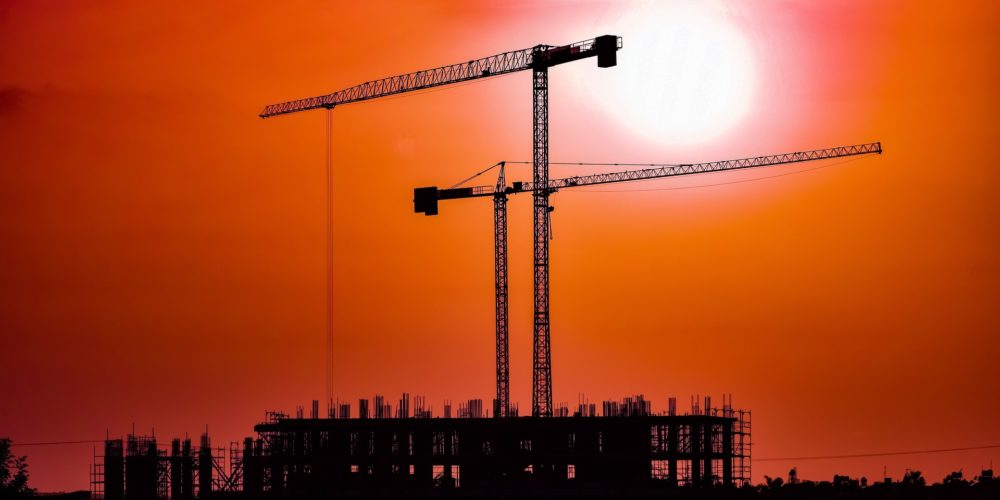Why good practice matters in business

Nairobi is a building site, wherever you look. Cranes and scaffolding everywhere, countless office blocks and apartment buildings coming up one after the other. New ground is broken every day, even though many of the properties built years ago remain largely unoccupied.
The dearth of tenants does not seem to matter to the developers. But that’s a story for another day.
Today, let’s discuss something different: the fact that many developers and contractors seem to flout regulations with disdain. The rules about noise and air pollution, building standards, site safety and employee protection seem to be laughed off by many.
On Good Friday, I tweeted that that particular holiday is about sacrifice for others, yet many construction sites in residential areas were at it, business as usual, generating their usual cacophonies from 6 am. Our me-first society, I added, has no respect for neighbourliness. As long as we prosper, everyone else can go to hell. No rest for anyone. Even during Easter.
The tweet struck chords with many. There were dozens of responses recounting Nairobians’ own experiences of noisy and destructive construction sites that don’t give a damn about their neighbours, of complaints unheard and pleas unheeded.
But there was also another kind of response. A few called this ‘elitist’ or ‘middle-class’ thinking: that a privileged minority demand their own comforts, while wanting to deprive construction workers of their much-needed daily wage. Construction noise is the ‘sound of development’, apparently, and should be allowed to go on unchecked because it creates jobs and incomes for the poorest of society.
This gave me pause. Not because there was a sensible point being made; but rather because I wondered what had become of critical thinking. Those making this point clearly believe it is a sharp and perceptive one, and make it with confidence.
Let’s start at the beginning. A given building requires a certain number of worker-days to put up, if technology is taken as given. That number of days will be used, one way or the other. If they are used relentlessly without a break, the builder benefits because the building is open for business sooner. But this benefit is at the cost of the workers, who don’t get any breaks; and at the cost of society, which has to put up with noise pollution without respite. The workers earn the same in the end, but are worked to exhaustion in the meantime.
By supporting rapacious contractors in their quest to put up shoddy buildings to the minimum standard in the shortest time while paying the lowest wages to labourers forced to work every day, we are not being sensitive about workers; we are merely falling into the trap every exploiter sets for society: ‘But look, I’m creating jobs.’
Yes, building sites create jobs. Have you visited one to consider the nature of those jobs, though? In the worst sites you will see humans doing the work of beasts of burden, dangerously and precariously, and paid a daily pittance to be shouted at all day long, with the threat of instant dismissal hanging over their heads.
Why do we have hordes of workers hanging around construction sites hoping for exactly those jobs, though? Because that is the world we have allowed to happen. A world with an army of uneducated young men with no other options; and a world in which those who try to do things honestly and humanely are run out of business by networks of patronage.
This isn’t just about construction, or noise, or pollution. It’s about bad business and bad regulation.
Any society that lets the most avaricious in its ranks run its businesses unchecked knows what comes next. Workers exploited, corners cut, standards breached, laws broken, customers hoodwinked, environments polluted, good businesses rendered uncompetitive. This is why we need fair and simple regulations, and why we need to have them adhered to.
There are of course businesspeople who work for a bigger deal, who want to do things right, with compassion and with long-term thinking. But in every industry they face competitors taking every possible shortcut, and often resign themselves to similar bad practice. Bad practice does not create good jobs; it creates unsustainable jobs stolen from the livelihoods of others.
We don’t have to remain hostages to the worst excesses of wild-west capitalism and sullied regulation. Sometimes it’s worth thinking a little: is this indeed the best world we are capable of running?
(Sunday Nation, 8 April 2018)

Buy Sunny Bindra's new book
The X in CX
here »
Popular Posts
- You are who you hang out withSeptember 28, 2025
- Why your mother was right about your anxietyOctober 12, 2025
- The balance sheet that mattersOctober 5, 2025
- Use AI, but don’t lose youOctober 19, 2025
- Born knowing the waySeptember 21, 2025















